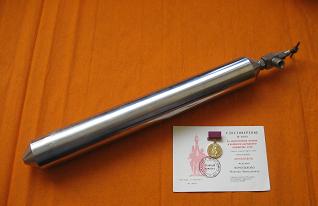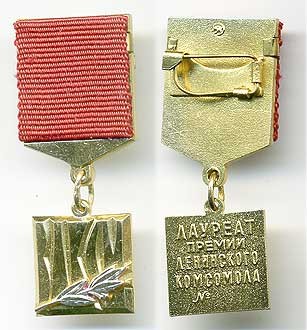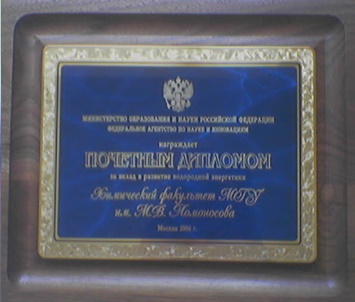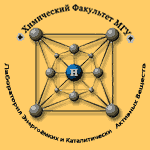| |
A study of the interaction of hydrogen with metals, alloys, and intermetallic compounds was begun at the Department of High Pressure Chemistry and Physics on the initiative of Professor K.N.Semenenko in 1976, continues to develop successfully and is one of the main scientific areas of the department.
Since 2000, the laboratory is headed by a graduate of the Faculty of Chemistry of Moscow State University, professor, V.N.Verbetskiy. |
|
 |
One of the main scientific areas of the laboratory is the development of effective materials for the storage and transport of hydrogen (hydrogen accumulators) that can be used to create electrochemical cells, fuel cells and simply as energy carriers of environmentally friendly fuel. The first practical developments that were implemented on the basis of the obtained results were laboratory metal hydride hydrogen storage systems. These high-purity portable hydrogen sources have found application in many research laboratories using hydrogen in various physicochemical processes.
In 1985, laboratory hydrogen storage units were awarded two bronze medals of the Exhibition of the Achievements of the USSR National Economy. |
 |
 |
As a result of the collaboration of laboratory scientists with the designers of ZiL and its Technical University, in 1983 the first Soviet ZiL-130 truck powered by hydrogen fuel was released. Hydrogen, stored on board in 4 metal hydride storage vessels with the TVZh-2 alloy developed in the laboratory, provided an additional mileage of up to 200 km and contributed to a 10-fold reduction in the content of nitrogen oxides and carbon monoxide in the exhaust gases. |
|
| |
In 1988, young employees and graduates of the laboratory S.V.Mitrokhin, S.N.Klyamkin, S.I.Kuliev, V.S.Zontov, A.N.Sytnikov, M.V.Lototsky were awarded the Lenin Komsomol Prize for the cycle of works “Creation of High-Performance Metal Hydride Materials for Hydrogen Accumulation”. |
 |
| |
A set of studies related to the creation of the scientific basis for the synthesis of new alloys-absorbents of hydrogen (S.V.Mitrokhin, T.A.Zotov, E.A.Movlaev, A.A.Tepanov), the creation of new supermagnetic materials using hydride dispersion technology (A.A.Salamova), synthesis of new hydrides under conditions of high gaseous and quasi-hydrostatic pressures (S.N.Klyamkin, S.A.Lushnikov, E.A.Movlaev), as well as calorimetric studies of the interaction in M-H2 and IMC-H2 (A.P.Savchenkova, R.A.Sirotina, N.A.Yakovleva, E.Yu.Anikina) were supported by both domestic and foreign grants. In the works of A.N.Sytnikov, A.V.Kochukov, S.N.Klyamkin, B.Ch.Alyev, S.I.Kuliev a series of studies on the accumulation of hydrogen by magnesium alloys were done, which made it possible for the first time to establish the mechanism of hydrogenation of magnesium in the presence of lanthanide hydride.
|
|
 |
In recognition of the merits of the laboratory, the international scientific community has delegated the right to hold the MH-2010 symposium to Moscow State University. The International Symposium "Metal-Hydrogen Systems. Fundamentals and Applications" is a forum for scientists from all over the world to present the latest results and exchange views on the fundamental and applied aspects of the interaction of hydrogen with metals and other materials.
Taking into account the laboratory’s significant contribution to the development of the scientific foundations of hydrogen energy, in 2004 the Chemistry Department of Moscow State University was awarded an honorary diploma of the Ministry of Education and Science of the Russian Federation. |
 |
|






